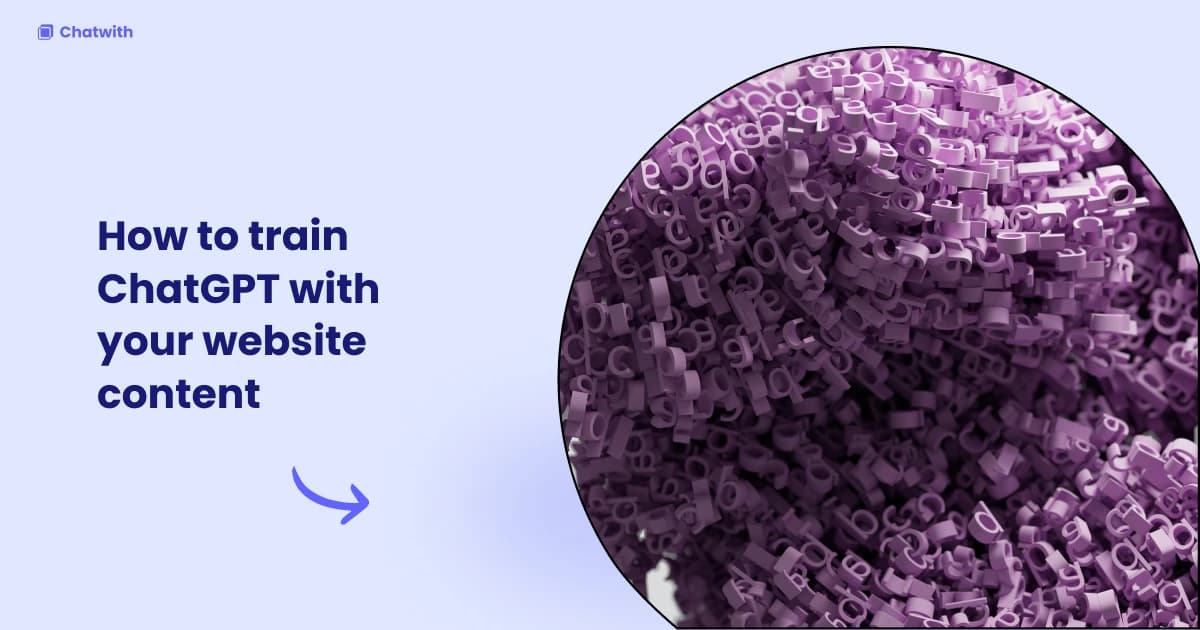
Founder of Chatwith
How OpenAPI Actions can make a custom GPT more powerful
In the world of AI-powered conversational agents, custom GPT Actions are a game-changer. These actions empower developers to enhance the capabilities of custom ChatGPT chatbots, making them more powerful and versatile. By integrating Actions into ChatGPT, developers can create smart AI agents that can seamlessly interact with external APIs with OpenAPI, access external data sources, and provide dynamic responses. In this article, we will explore the concept of GPT Actions, their role in ChatGPT, and the numerous benefits they offer.
Understanding GPT Actions
Key concepts of GPT Actions
Custom GPT Actions are a way to extend the functionality of ChatGPT models by integrating external APIs. They allow developers to define custom actions that enable the chatbot to interact with the real world, access external data, and perform various tasks. These actions are defined using the OpenAPI specification, which is a standard for describing APIs. From a technical point of view, these actions leverage the Function Calling capabilities available in a few specialized OpenAI LLM models.
Working with OpenAPI specifications for GPT Actions
To create a custom GPT model with OpenAPI Actions, developers need to follow an end-to-end flow. First, they create a GPT in the ChatGPT UI and configure it according to their requirements. Then, they identify the API(s) they want to use and define the actions using the OpenAPI specification format. At this point, usually the help of an experienced software developer is needed to create an API and the OpenAPI specification file for it. The schema and authentication details are filled in during the configuration process of the custom ChatGPT. Finally, after publishing of the GPT in the ChatGPT store, users can engage with the chatbot, triggering the defined actions.
Benefits of GPT Actions using OpenAPI
1. Adding even more chatbot capabilities
GPT Actions empower developers to enhance the conversational capabilities of ChatGPT models. By integrating external APIs, chatbots can perform a wide range of tasks, such as retrieving information from databases, sending emails, or even acting as shopping assistants. This opens up a world of possibilities for creating chatbots that can provide valuable and personalized interactions to users and automate processes in business environments.
2. Improving response accuracy and helpfulness
Integrating OpenAPI Actions into ChatGPT allows developers to improve the accuracy of the chatbot's responses. By accessing external data sources and services, the chatbot can provide up-to-date and relevant information to users. This ensures that the responses are accurate, reliable, and tailored to the specific needs of the users.
3. Automating tasks and business processes
The integration of Actions with ChatGPT models can increase the automation of tasks and business processes. By leveraging these actions, developers can program ChatGPT to perform routine tasks such as scheduling meetings, processing HR requests, collecting feedback and more. This automation reduces the need for manual intervention, allowing businesses to allocate their resources more efficiently and focus on strategic initiatives.
Final thoughts on OpenAPI Actions in ChatGPT
In conclusion, adding GPT Actions to ChatGPT can bring numerous benefits to businesses and consumers alike. Actions offer a direct path to integrating external APIs and enabling the creation of custom GPT chatbots with access to up-to-date information. This not only simplifies the development process but also opens up a realm of possibilities for personalized and complex functionalities within ChatGPT models. The ease of integration and the power of customization with Actions using OpenAPI provide developers with the tools to build advanced, responsive, and specialized chatbot experiences.
More from our blog
How much time can AI chatbots save you on customer support
Can artificial intelligence bot save you time and money? Learn how AI chatbots for customer support automate responses and boost customer satisfaction.
How to train ChatGPT on your data and build a custom AI chatbot
Learn how to train ChatGPT on your own data. We created a guide on how to train AI chatbot with custom data, eg. a knowledge base or a website.

